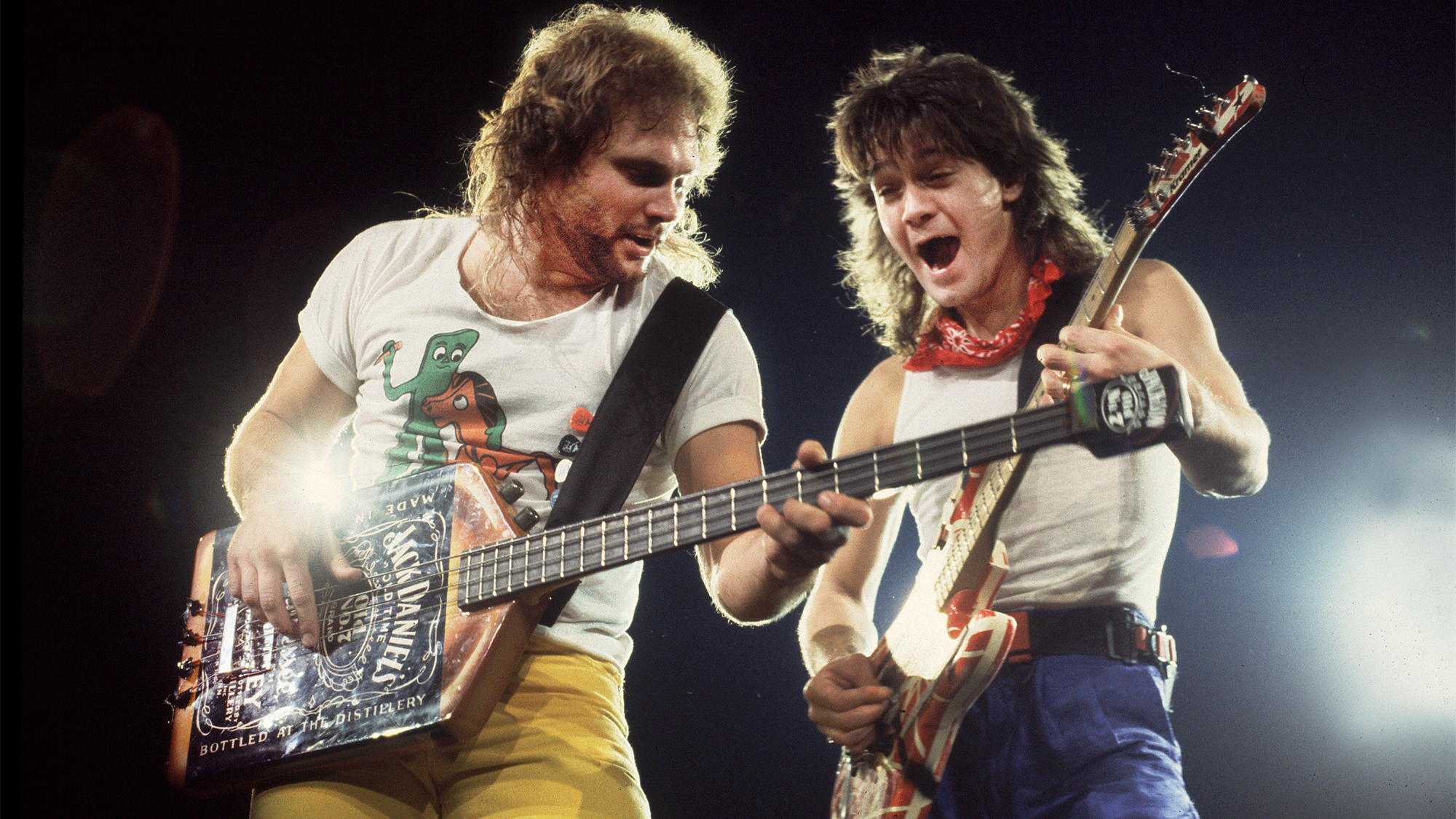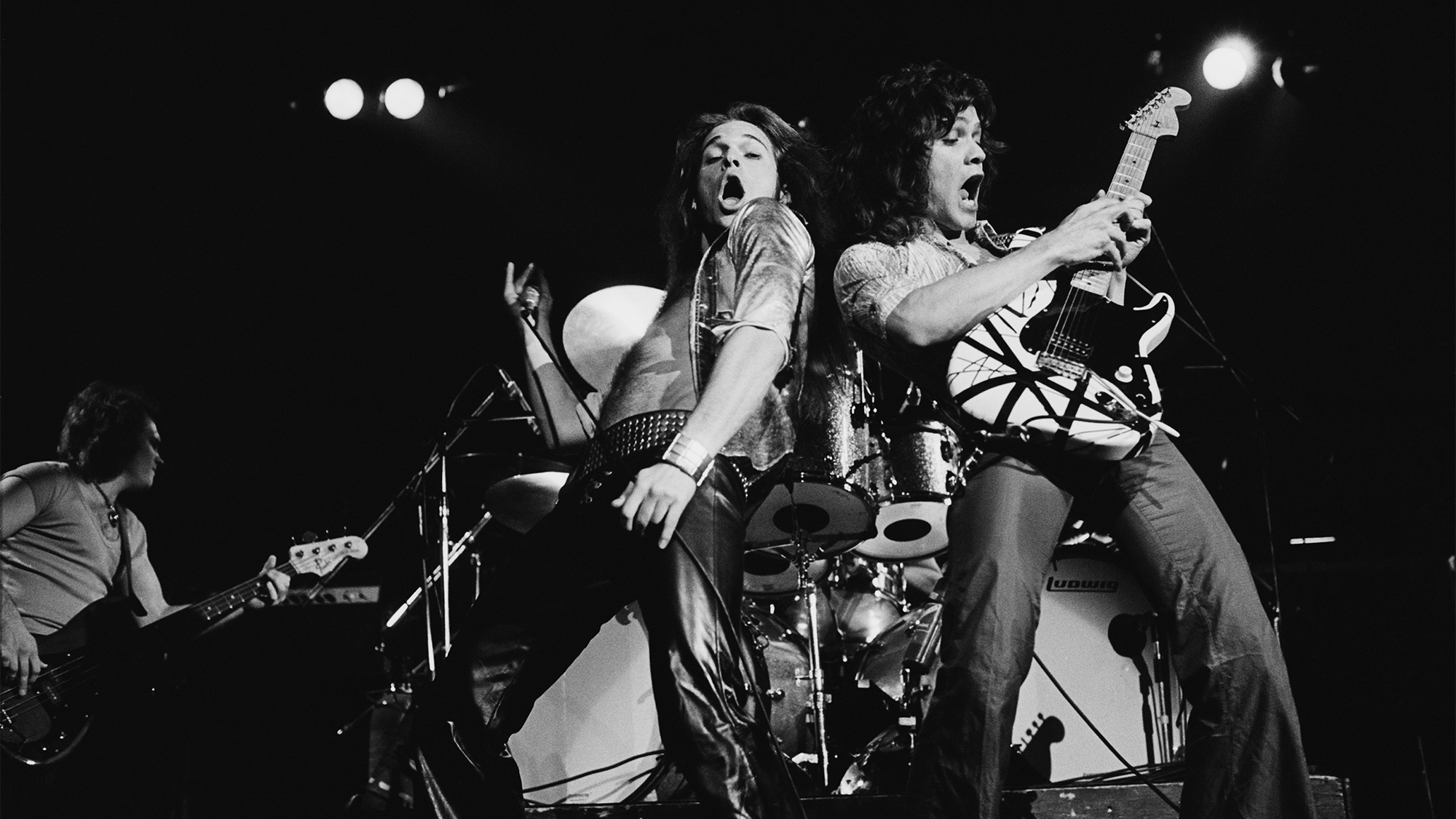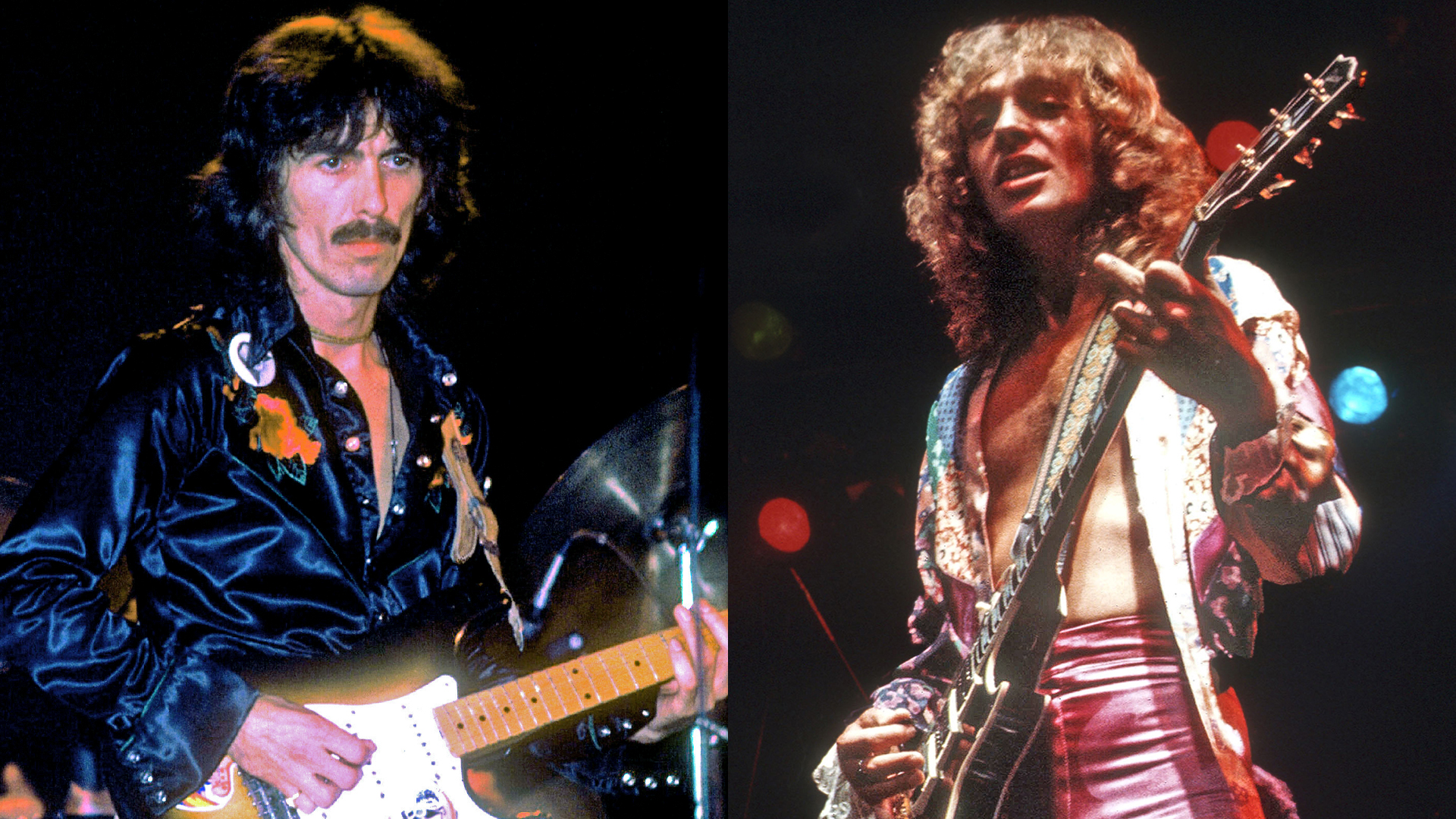"There were a couple of guys there listening at the door, and they wanted to hear what Ed played.“ Michael Anthony reveals David Lee Roth's career-saving advice to Eddie Van Halen during Van Halen's early days
The former Van Halen bassist says the singer was concerned other guitarists would steal Eddie's technique before the guitarist could establish himself

Eddie Van Halen reshaped the landscape for guitar. But as former Van Halen bass guitar player Michael Anthony says, his impact might not have been as great were it not for some advice David Lee Roth gave the guitarist early on.
In a recent episode of the Get on the Bus podcast, Anthony said Eddie’s two-handed tapping was drawing interest from guitar players even before the group began performing before large audiences.
“We used to rehearse in this little garage when I first joined the band, and we used to rehearse there every day for a while,” Anthony says. “That’s when Eddie was also developing his ‘hammers’ — his tapping style.”
“And it’s funny, because there were, like, two or three guitar players in the area that Ed was friends with, and they knew that we rehearsed there. And I remember one time we went to take a break, and we walk outside, and there were a couple of guys there like this, listening at the door, and they wanted to hear what Ed played.”
Roth was aware of the curiosity Eddie’s guitar playing was creating. Anthony says the frontman was concerned other guitarists would copy Eddie’s style and make their mark before Van Halen could. Roth stressed that Eddie needed to guard his secret from onlookers, even when they performed in public.
“We played a place called the Golden West Ballroom in Norwalk, California, and that was one place where we could play original stuff,” Anthony says. “And we opened up for UFO there. I think that was one of the biggest shows we ever did. It held about 1,500 to 2,000 people.
“But when Ed would play a solo, Dave would tell him, ‘Turn your back to the audience, dude, because you got this thing, and you don’t want everybody to see it.’
All the latest guitar news, interviews, lessons, reviews, deals and more, direct to your inbox!
“So Eddie would, literally, play solos, and he would turn his back to the audience when he would be tapping. Which was really, really interesting.”

Eddie of course wasn’t the first guitarist to use tapping. Electric guitar players were doing it for decades before Eddie. Harvey Mandel says Ed learned it from watching him.
What was different was how Ed tapped, using it to perform entire lines while seamlessly integrating it with hammer-ons, pull-offs and slides.
“It wasn’t so much the tapping,” Anthony says, “but the way he did it was different than what anybody else was trying to do.”
Anthony was replaced by Eddie’s son, Wolfgang, in 2006. The bassist says that, at the time of his death in 2020, Eddie had plans for a reunion that would have included him.
“Unfortunately Eddie and I never [made up],” Anthony revealed on Get on the Bus. “We had some issues, and I’m sure that if he had not passed when he did that we would’ve reconciled or we would’ve really calmed all that stuff down.
“Because I did hear, and I’ve talked to Wolfgang about it, that they were planning on coming to all of us and putting together a big reunion tour with all of us.
“And at that point in Ed’s life, I think he was a little bit more, like, ‘Hey, the past is the past,’” he says. “But, unfortunately, it was not to be.”
Anthony previously revealed that Eddie left behind a vast archive of unreleased material when he died. Drummer Alex Van Halen has suggested he may use AI to turn some of that unfinished material into completed songs, and has enlisted guitarist Steve Lukather, a close friend of Eddie’s, to help him sort through it. Whether anything comes of it remains to be seen.
Christopher Scapelliti is editor-in-chief of GuitarPlayer.com and the former editor of Guitar Player, the world’s longest-running guitar magazine, founded in 1967. In his extensive career, he has authored in-depth interviews with such guitarists as Pete Townshend, Slash, Billy Corgan, Jack White, Elvis Costello and Todd Rundgren, and audio professionals including Beatles engineers Geoff Emerick and Ken Scott. He is the co-author of Guitar Aficionado: The Collections: The Most Famous, Rare, and Valuable Guitars in the World, a founding editor of Guitar Aficionado magazine, and a former editor with Guitar World, Guitar for the Practicing Musician and Maximum Guitar. Apart from guitars, he maintains a collection of more than 30 vintage analog synthesizers.
